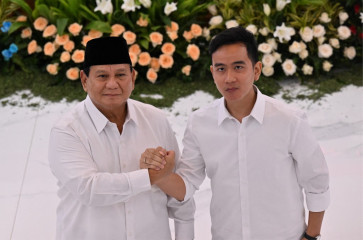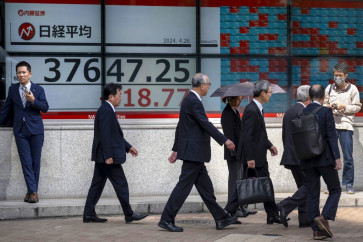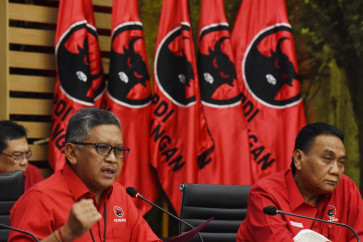Editorial: A dream resignation
"This will never happen in Indonesia,â or âIf only we were Korean,â are two reactions that Indonesians may utter when hearing about South Korean prime minister Lee Wan-kooâs resignation on Monday for allegedly accepting a bribe worth 30 million won (US$27,390) from businessman Sung Wan-jong in 2013
Change Size

"This will never happen in Indonesia,' or 'If only we were Korean,' are two reactions that Indonesians may utter when hearing about South Korean prime minister Lee Wan-koo's resignation on Monday for allegedly accepting a bribe worth 30 million won (US$27,390) from businessman Sung Wan-jong in 2013.
Reuters reported that President Park Geun-hye approved Lee's exit, two months after he replaced Chung Hong-won who was forced to leave his post in a show of responsibility for the poor handling of a ferry disaster that claimed more than 300 lives in April last year.
'There is a lot I want to say, but I will leave behind a void with the belief that the truth will one day surely be told,' Lee said in his farewell speech.
'We wish Indonesian officials would follow his act,' will be another possible response to the news report of Japanese agriculture minister Koya Nishikawa, who called it quits over a political funding scandal in February. He was the third minister to leave Shinzo Abe's Cabinet in less than six months after trade minister Yuko Obuchi and justice minister Midori Matsushima departed last October.
Such a wish, however, will stay as a mere hope because such a 'shame mentality', or 'a sense of responsibility' eludes Indonesian politicians and officials.
Here in this country we rarely hear news of state officials who tender resignations after being implicated in serious crimes.
It is true that at least two top officials, then minister of energy and mineral resources Jero Wacik and then minister of religious affairs Suryadarma Ali, left the Cabinet of then president Susilo Bambang Yudhoyono as its term neared its end. But it happened only after the Corruption Eradication Commission (KPK) declared them graft suspects, forcing them to relinquish their posts anyway.
But did Suryadarma and Jero feel humiliated? At least from the way they talked to the media after or before questioning they did not give an impression that they felt guilty or ashamed. They broadly smiled at journalists instead.
Such a behavior is quite common among graft suspects in this country. In some cases graft convicts confidently hold onto their public posts while serving their prison terms.
In this country adultery, street crimes or attire deemed in violation of religious norms are often regarded as more dangerous to the nation than acts of corruption.
So when we can follow the characteristic traditions of South Korean and Japanese officials?









